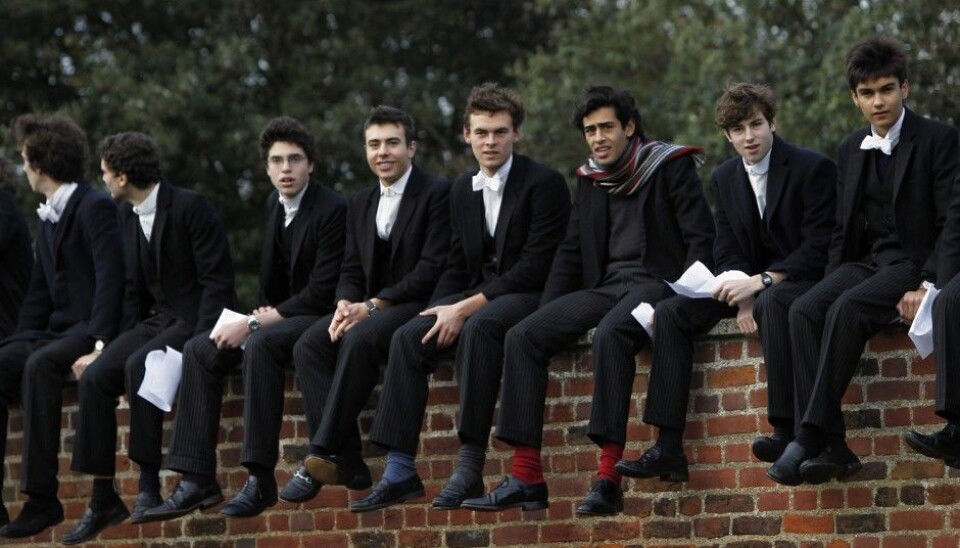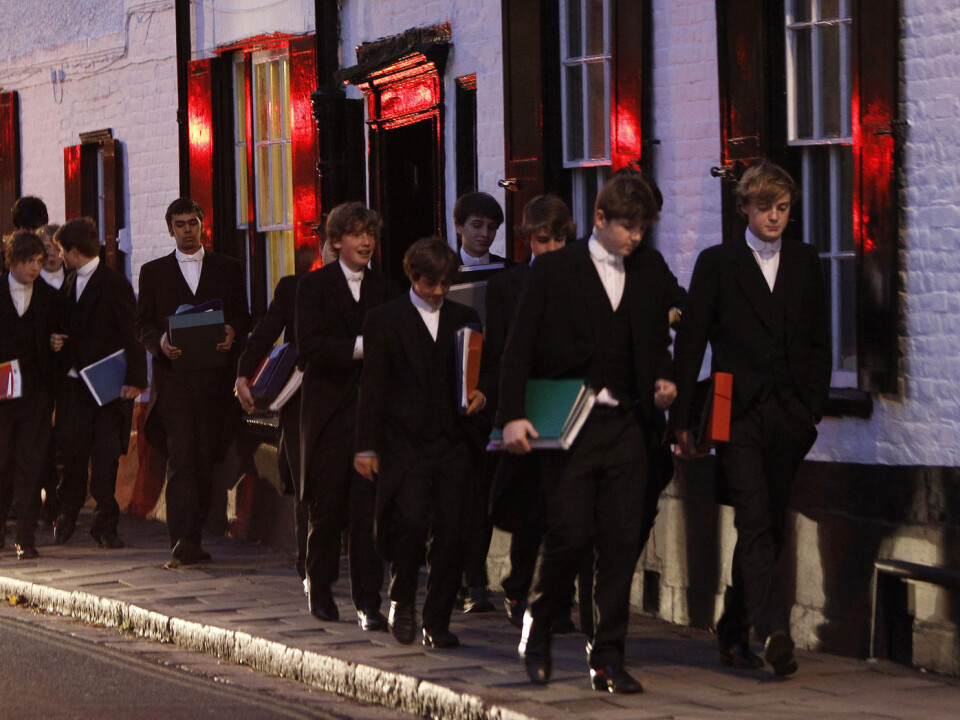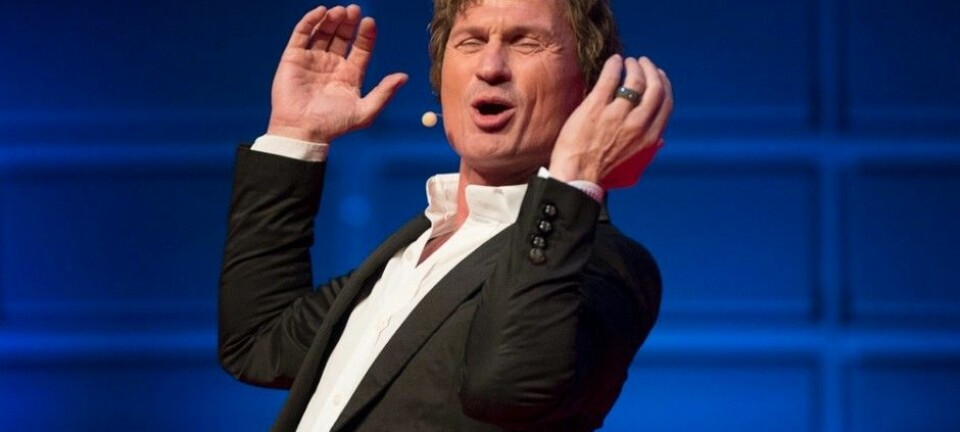
Pupils from elite schools still rule
The “Old Boys” club still controls the UK.
Does it matter where you go to secondary school? In the UK, the answer is apparently yes.
Pupils attending elite boarding schools such as Eton are 94 times more likely than pupils at other schools to be part of the ruling elite when they are grown.
For example, the former British Prime Minister David Cameron and his political opponent Boris Johnson both went to Eton College, boarding school for boys between the ages of 13 and 18.
Although these elite schools have lost some of their influence over the last century, a man is much more likely to be among the ruling elite if he has attended one of these nine prestigious boys' schools: Eton, Harrow, Rugby, Westminister, Charterhouse, Merchant Taylor's, Shrewsbury, St Paul's and Winchester College.

That’s what British researchers, aided by a Norwegian sociologist, have determined.
Pupils from these schools continue “to be very strongly overrepresented" in the ruling elite, says Magne Flemmen, a postdoc at the University of Oslo. Flemmen worked with the study when he was a visiting researcher at the London School of Economics last year.
“Old boy”
The study represents the first time researchers have examined 120 years of biographical data from “Who’s Who,” which is an annual catalogue of the British elite. The publication contains names of the more than 120,000 judges, top politicians, directors and researchers who have distinguished themselves.
This is mostly a catalogue of elderly gentlemen. On average, the typical individual included in the register is 50 years old and very likely to be male.
Nine per cent of the individuals listed in the last edition of "Who's Who" are "old boys", which is what graduates from elite schools are called. But consider this: just under 0.2 per cent of British students attend these private schools.
The researchers behind the study believe this is unacceptable.
When these pupils are grown, they have already acquired a unique network, which they usually maintain in exclusive men's clubs.
Traditionally, the elite schools have strong links with the nobility and religious and military leaders. Now, the traditional elite groups have lost some of their power, while educational reforms have made sure that more people have access to an education. These are some of the reasons why the elite class is opening up a little, the researchers believe.
A closed worldview
A man born in 1847 was 274 times more likely to be a member of British elite if he attended one of the top schools. In contrast, the youngest men included in the study, born in 1967, were “only” 67 times more likely to be in the British elite if they attended one of the schools.
Nevertheless, "old boys" remain a special group.
“The cliché about ‘old boys’ is that they are very privileged people who work and play in tight, closed networks characterized by a lot of prosperity and a somewhat confined worldview,” Flemmen says.
Flemmen says, however, that it is difficult to say to what extent schooling creates a particular behaviour or mindset among the students.
But the researchers believe these elite few are shaped by common experiences they have while at school, and as much by what they do in the classroom as what they do after classes.
Here, boys learn a special way of talking, dressing and behaving that signals their elite status to others. They also build relationships with other pupils who are on their way to becoming members of the elite class too.
“The question is whether the elite develop loyalties to the group, which are then more important than considering the needs of the population as a whole,” Flemmen said. He says the study cannot prove this one way or the other, even though at least some UK residents believe this to be true.
Family or school?
In addition to the nine top schools, the researchers looked at several hundred other private schools. Pupils from this group of 200 private schools are 35 times more likely to become a member of the UK’s elite.
Is it the schools that create the elite or is it because these children follow in the footsteps of their parents? Many men in the UK’s elite probably grew up in an elite family. But the researchers were not able to determine this from the data they used, which contained little information about the parents' occupation, education or income.
Flemmen still believes that family is of great importance. It is expensive to go to Eton or one of the other prestigious boarding schools. Although there are scholarships, the proportion of students from more modest means is relatively small.
The study also shows that attending an elite boarding school and an elite university confers a double advantage. But a person can also increase the chance of joining the elite if he or she studies at Oxford or Cambridge, even without having attended an elite boarding school first.
The researchers have not investigated whether women benefit as much as men from attending elite schools. But Flemmen believes it might be important for them, too.
“In Norway, we have found that family backgrounds mean even more for women than for men if women end up in top positions,” Flemmen says.
-------------------------------------
Read the Norwegian version of this article at forskning.no































